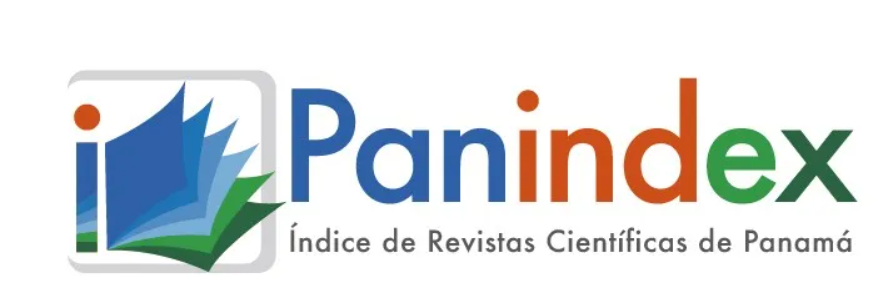Manuscripts sent to SALUTA Magazine must be original and unpublished and must not be simultaneously in the process of publication in other magazines, compilations or any other means of publication. The content of the publications and the links suggested in them are the sole responsibility of the authors and not of the METROPOLITAN UNIVERSITY OF EDUCATION, SCIENCE AND TECHNOLOGY
(UMECIT) or the magazine SALUTA. They are protected by international copyright laws as well as the logos of UMECIT AND SALUTA MAGAZINE, hence their reproduction is totally prohibited. The copyright will belong to the UMECIT.
Under a Creative Commons Attribution License authors may share work with acknowledgment of authorship of the work and initial publication in this journal.



Abstract
This article present the analysis of the malaria situation in the towns of areas with difficult access in times of COVID-19. Methodologically, the qualitative approach is considered, the type of theoretical documentary research supported by a bibliographic design with a descriptive and transversal scope. The data collection techniques and instruments used are direct observation, content analysis, and a registration matrix for the secondary information sources reviewed. From a chronological point of view, the sample covers the literature consulted from 2019 to 2021. As results and conclusions, it is considered that malaria cases are increasing in the populations of Southeast Asia, Eastern Mediterranean, Western Pacific and America, with higher vulnerability in sub-Saharan Africa, at a time when health action is focused on solving the coronavirus crisis. Among the causes of affectation are: the prioritization and concentration of efforts in the care of the coronavirus by the health systems, the mobility restrictions of people with interruptions in the treatments and pre-established care programs, as well as the diversion of human resources and materials for malaria programs to address the virus.
Keywords
References
Calatrava Ruíz, B. (2019). Malaria: Enfermedad tropical. Revista Logos, Ciencia & Tecnología. 21:32-9. Colombia.
Carther Scheifer, L. (2020). El Covid-19 y la malaria en Mesoamérica. Rev. Malaria Journal. London. Vol. 15.
Gómez Díaz, E. (2020). Luchar contra la malaria en tiempos de coronavirus. Revista Médico Científica de Panamá. 32 (1):37-60. Panamá.
González Talavedra, M. (2021). La malaria en tiempos de Covid-19. Revista brasileña de Salud pública. Vol. IV N°1. Brasil.
Henríquez Nieto, L. (2019). Factores de riesgo de malaria y Covid-19 en poblaciones rurales. Revista Perú Med. Exp. Salud Pública Vol. 524:35-9. Perú.
Organización Mundial de la Salud (OMS, 2019). Estrategia Mundial contra la Malaria 2016- 2030. Boletín institucional. Ginebra Suiza.
Landaeta Moran, T. (2018). El proyecto de investigación. Barinas: Colección Docencia Universitaria: UNELLEZ. Venezuela.
Lincoln E. y Guba Y. (2016). Paradigmas en competencia en la investigación cualitativa. Material mimeografiado.
Martínez Guevara, M. (2015). Investigación sin fronteras. Ediciones Sur. Colombia. Organización Mundial de la Salud/Organización Panamericana de la Salud (OMS/OPS,
2019). Informe programas de malaria. Boletín institucional. Ginebra Suiza.
Pérez Acosta, U. (2015). El proyecto de Investigación. Introducción a la metodología científica. 5ª Edición. Caracas: Episteme.
República de Panamá. Ministerio de Salud de Panamá (MINSA, 2020). Situación de la malaria y Covid19 en Panamá. Documento constitucional. Panamá.
Ruíz Fuentes, T. (2020). Impacto del Covid19 en los pacientes con malaria. Un estudio de casos. Revista Brasileira de Epidemiologia. 9 (3): 283-96. Brasil.
Tunner Frunser, G. (2021). Mitigación de los efectos del Covid-19 en los servicios y programas de VIH, tuberculosis y malaria. Revista Nature Communications. 7 (2): 85-96. Reino Unido.
Véliz Anzola, A. (2017). Metodología cualitativa. Editorial Terras. Caracas.
Tunner Frunser, G. (2021). Mitigación de los efectos del Covid-19 en los servicios y programas de VIH, tuberculosis y malaria. Revista Nature Communications. 7 (2): 85-96. Reino Unido.
Véliz Anzola, A. (2017). Metodología cualitativa. Editorial Terras. Caracas.Areas difficult to Access
Downloads
Publication Facts
Reviewer profiles N/A
Author statements
- Academic society
- Universidad Metropolitana de Educación, Ciencia y Tecnología
- Publisher
- Universidad Metropolitana de Educación, Ciencia y Tecnología



















